By Manuel Ortiz Escámez and Anna Lee Mraz Bartra
With information from Igor Carvalho,
Photographs by Bárabara Pelacani and Chico Brum
Global Exchange, Peninsula 360 Press
In the October 2 general elections in Brazil this year, there are two country projects competing at the polls, with no room for a third way.
On the one hand, the ultra-right is betting on Jair Bolsonaro ?PL?, current president and candidate for reelection. On the other, the leftist and former president Luiz Inácio Lula da Silva ?PT?, who is trying to return to power after 12 years.
In this electoral process, not only the presidency is at stake, but also governorships, lieutenant governorships and part of the National Congress are in dispute. This year, 29,097 people ran for the offices of state deputy, federal deputy, senator and state governors.
These elections could determine the direction of the country in terms of human rights, gender freedom and the subsistence of Brazilian forests - such as the Amazon - which are currently being devastated by mining, logging and agribusiness; unbridled development pollutes the water and air as seen not only in rural areas but also in large cities such as Rio de Janeiro.
According to Dr. Celso Sanchez, a biologist and professor at the Federal University of Rio de Janeiro - UNIRIO - and director of GEAsurThe government of President Jair Bolsonaro has been characterized by an unprecedented environmental devastation in Brazil, particularly in the Amazon, considered the lungs of the world, as well as a "very violent advance of human rights violations".
Therefore, according to Sanchez, these elections are "absolutely important since the continuity of life is at risk not only in Brazil but in the whole world".
In response to political aggressions and eco-genocide, as Sanchez calls the environmental devastation in Brazil, black communities called quilombolas, women, LGBTTTIQ+ people and native peoples, have organized not only to resist but also to re-exist through the creation of collectives, support networks and minority candidacies, many of which are considered contested, that will play an important role in these elections.
Brazilian photographers Bárbara Pelacani and Chico Brum photographed some of these candidates in Rio de Janeiro.
Candidates like Tereza Arapium, an indigenous woman running for the post of state deputy in Rio de Janeiro for the Rede Sustentabilidade party - REDE, presents public policy proposals from someone who was born in the jungle, healed with traditional medicine and walks on the mission to defend the land and the people who inhabit it. Territory, body and spirit are connected and are part of the life of the native peoples, who are the guardians of the forests, the waters and the land. Their campaign advocates that this ancestral knowledge be exchanged with social groups in the cities.
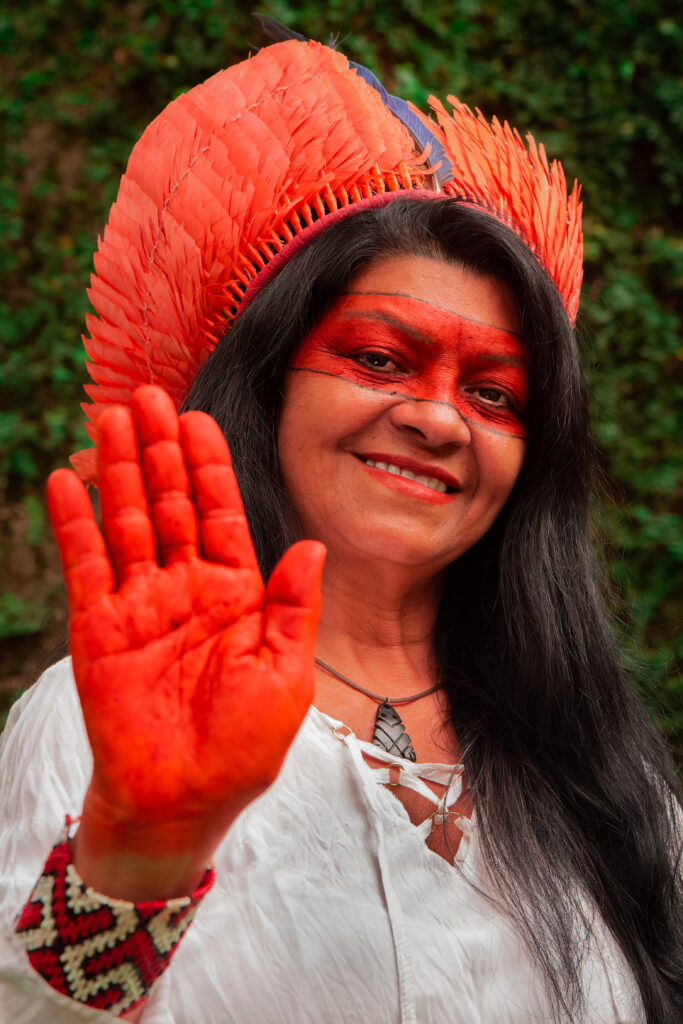
The devastation of the Amazon is also depriving indigenous peoples of their right to live. Arapium's campaign denounces the ongoing ecocide and genocide in Brazil and advocates for the demarcation of indigenous territories.
These nominations "are predominantly female and not only indigenous, the role that black women have today, of course because of the giant legacy of Marielle Franco and the seed she represents of hope to speak in this home of political occupation, the importance of indigenous black women, Afro-indigenous or as we prefer to call afropindoramic ?because pindorama was the name given to the continent by our indigenous ancestors?"explains Sanchez.
"So this Afro-Indigenous youth has a tremendous participation in the management, they have organized marches, the marches of the Margaritas, the march of the black women, the march of the indigenous women and from there many artistic leaders are coming out."Sanchez tells Peninsula 360 Press.
Benedita da Silva, for example, is a black woman candidate for federal deputy of Rio de Janeiro for the Workers' Party (PT). She is the only black parliamentarian who is a member of the Assembly in which the 1988 Brazilian Constitution was built. Her struggle originated in the Association of Favelas of the State of Rio de Janeiro, where she was a volunteer and worked in the literacy training of young people and adults with the Paulo Freire method. Currently, Benedita da Silva is a federal deputy and is the author of a Bill ?PL? which foresees that political parties reserve minimum quotas for the candidacy of Afro-Brazilians in the elections to the Legislative Branch.
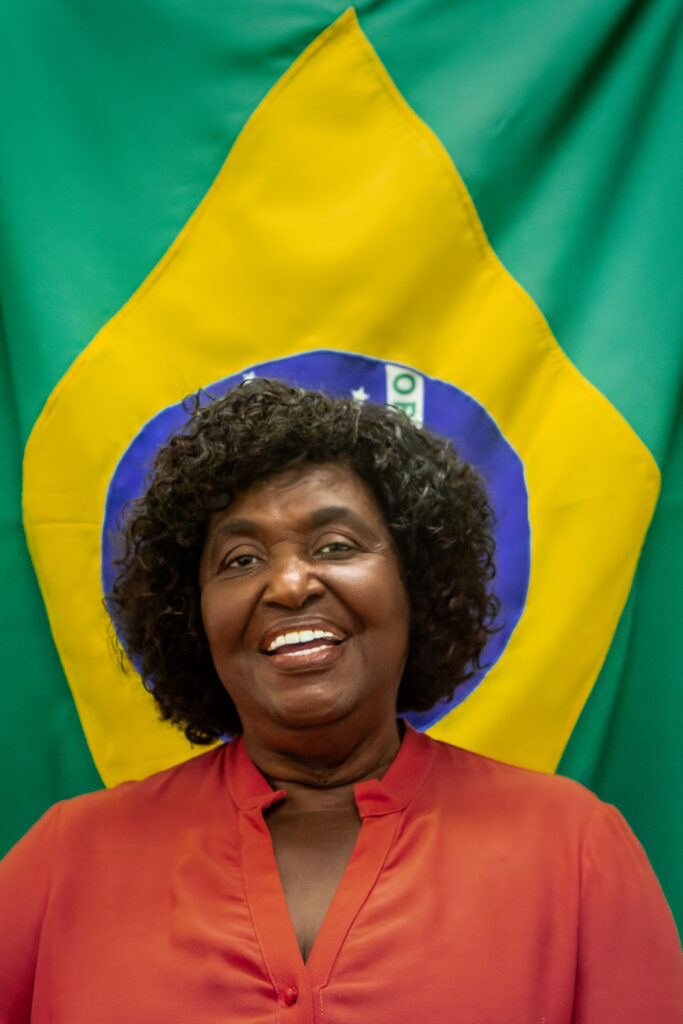
Benedita da Silva has occupied the institutional political space for 40 years. Her history in public life goes hand in hand with the redemocratization process in Brazil, opening the doors for other black women to dream and be part of partisan politics. Her candidacy is crossed by the current political moment of setbacks. As a reference of these dark times, the candidate tells us that the murder of Marielle Franco was a political milestone, where the extermination of lives becomes an institutionalized practice. Something that must be fought from political spaces so that Brazil can be restored.
For the first time in Brazil's history, blacks will be the majority of candidates, 49.57 percent of the total. Whites, total 48.86 percent. The 2019 survey conducted by the Brazilian Institute of Geography and Statistics (IBGE) shows that 54 percent of the population is black.
However, when we leave the general data and focus on the positions in dispute, we see that the Brazilian parties concentrate the candidacies of blacks in the less important positions of the election.
For the majority positions, which are president, governor and senator, blacks represent only 35 percent of the candidacies: there are 166 black or brown candidates, against 310 whites. Among the 13 candidates for the presidency, only three are black: Leonardo Péricles (UP) and Vera Lúcia (PSTU), who declared themselves black, and Father Kelmon (PTB), who declared himself brown when registering with the TSE.
Benedita da Silva is a reference for left-wing social movements, for women and for blacks. A woman who, at 80 years old, with great-grandchildren at home, stands up and launches another political campaign, because she believes that it is necessary to fight and maintain hope at a time of so many challenges.
The growth of black, women and indigenous candidates in Brazil is due to the support of specific laws and has been celebrated by public opinion.
Today, women, represent 33 percent of the candidacies, while, in 2018, they were 31 percent of the contestants. There is still a long way to go, as women make up 52 percent of the Brazilian population, according to IBGE. But progress has been seen in terms of representation since 2009, by force of Law No. 12,034, each legend must respect the minimum percentage of 30 percent and the maximum of 70 percent for the candidacies of each gender.
Benny Briolly, a trans woman, is a candidate for state deputy in Rio de Janeiro for the Socialism and Freedom Party (PSOL).
Briolly is the first transsexual woman elected in Niteroi, in the state of Rio de Janeiro. She is a transvestite, defender of black African and favela religions. She is a councilwoman in Niterói, forged in student militancy, where she began to feel alive and hopeful. Her struggle arose from need, pain, loss, facing denials and lack of access to the basics.
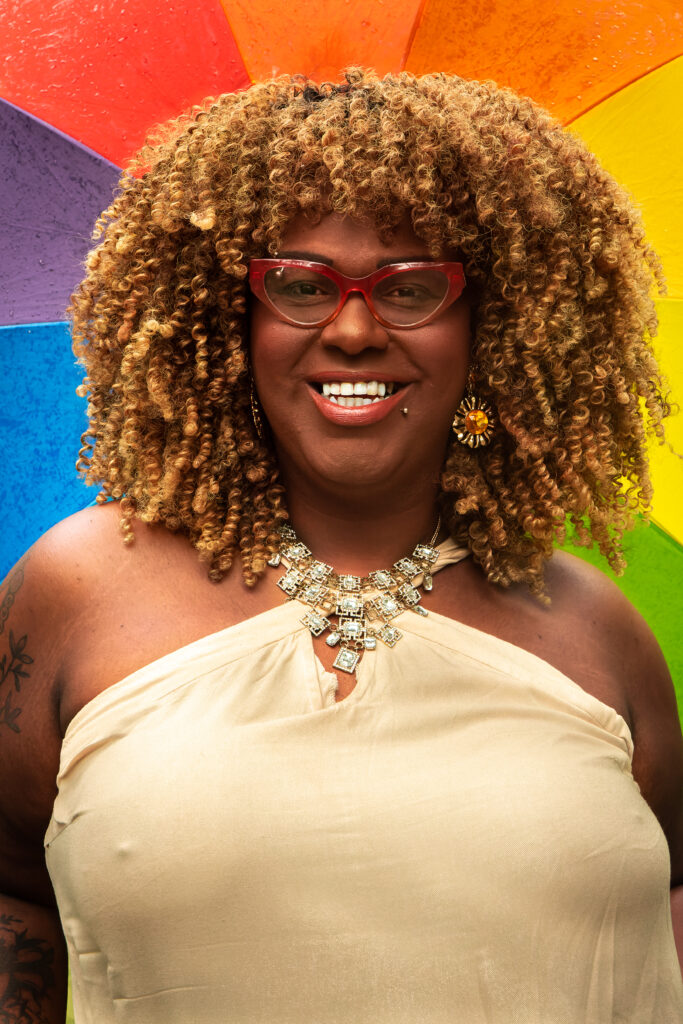
Benny faces the challenges of a trans candidacy in the midst of political violence, gender-based threats and threats against her religion. To face adversity, her main tool is the body, which occupies spaces and provokes the repositioning of the limits of power relations.
Vote LGBT data shows that the country will have 275 LGBT candidates, 0.9 percent of the total, with 113 cis women, 82 cis men, 43 trans women, 19 transvestites, 6 non-binary, 5 trans men and 7 people who chose to define themselves in other ways.
Of these 275 LGBT candidacies, 227 are concentrated in parties considered left-wing or progressive, with 95 in the PSOL, 60 in the PT, 28 in the PSB, 23 in the PDT and 11 in the PCdoB. Another 42 candidates will come from the center and only six from the right, but none will be in the PL, President Jair Bolsonaro's party, considered extreme right-wing.
Campaigns of indigenous, black, trans, LGBTQIA+, rural workers, women of struggle that inaugurate counter-hegemonic processes in Rio de Janeiro and Brazil in the year 2022. The invisibility of these campaigns and these social groups means the existence of rights that are not historically respected in the country.
For the position of federal deputy, women represent 34.5 percent of the total number of candidacies. Men, 65.6 percent. When it comes to the Senate, the most important legislative chamber in the country, there is a disparity: only 22 percent of the candidacies are female.
Mônica Francisco carries in her body, in the color of her skin, in her gender, in her territory and in her ancestry, all the history of oppression and violence committed against blacks, especially against women.
Originally from Borel, she was a worker, a domestic employee and, as an exception to the rule, graduated in Social Studies. She was a teacher at ESPM, advisor to Mariele Franco and today is a State Representative.
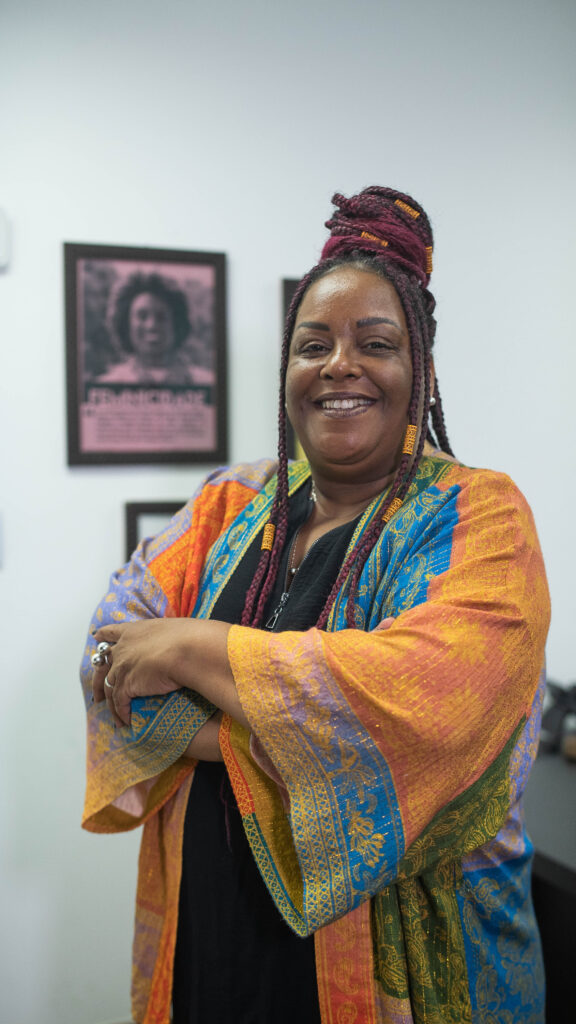
Francisco believes that work and income are part of the way to deepen his struggles for human rights, feminism and against structural racism. Mônica knows that without the eradication of poverty there is no true democracy.
Francisco works for the promotion of gender equality, equity in health care for blacks and for respect for the LGBTQIs+ community, for more black women in politics. She fights for a solidarity economy and so many other agendas needed for a fairer Brazil.
Among the 10,564 candidates for federal deputies, blacks represent 48.25 percent, compared to 50.18 percent of whites. In the race for state deputy, the least important of the Brazilian elections, there are 16,661 registered candidates, 56 percent of the total. Here, blacks are in the majority, 51.97 percent.
Sol Miranda, candidate for federal deputy for the PSB in Rio de Janeiro, warns of the strong obstacles, inside and outside the party structures, that prevent the rise of black candidacies.
"The biggest difficulties a black woman may face in the electoral process orbit around several barriers that lead us to political violence. This process does not have a single onset, but regardless of how it occurs it is a warning that we are not safe, from offensive comments and messages on social media to death threats. This aspect of political violence is the most debated currently."Miranda tells P360P.
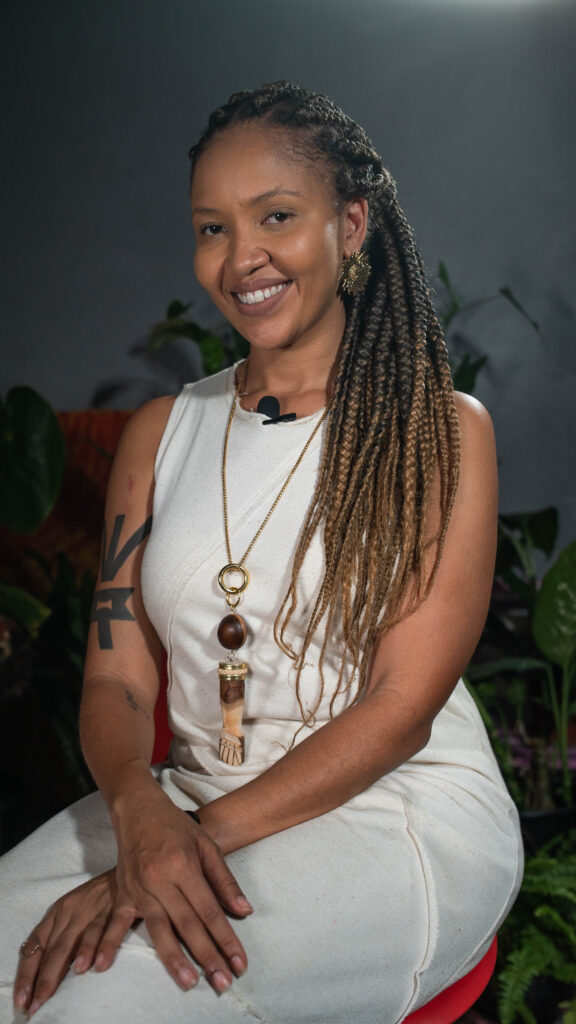
Miranda was born in Favela Cinco Bocas, in Rio de Janeiro. She has a degree in Literature. At the age of 23 she became a mother and today, like most young women in Brazil, she reconciles career and motherhood. Her vision stems from the desire to use her professional work to collaborate in the distribution of opportunities, especially for the population less assisted by social policies.
Making politics is a poetic act for the women portrayed. As long as the excluded are not in political spaces, there will be no creation or implementation of public policies for them. These candidacies are the search for the end of structural racism, slavery, patriarchy, homophobia, elitism, and agribusiness.
On October 2, more than the presidency of the country is being disputed in Brazil. Social liberties and the political representation of the protestors are being disputed. These candidacies go against the capitalism of death, in the midst of a government that today disrespects the constitution, withdraws public policies of interest to the population and implements its process of extension of neoliberalism with the institutionalization of death as a political tool.
The contested candidacies portrayed here place themselves in the exercise of challenging the leftist parties themselves with more diverse, broader and fairer agendas. They have in mind the class struggle, the impoverished and the scourged of the capitalist system, but they also act for blacks, indigenous people, favelas, rural workers, the LGBTQIA+ population, people with disabilities, children, the elderly, women.
Through their campaigns they criticize the traditional ways of doing politics and point out the commitment of women in politics. These women want to occupy political positions to challenge the superstructures of silence and denial, to reaffirm the memory of their social groups and to continue the struggle they have built.
This article was produced with the support of the organization Global Exchange in collaboration with Peninsula 360 Press.
You may be interested in: Warn that rights and democracy are at risk in Brazil's upcoming elections


